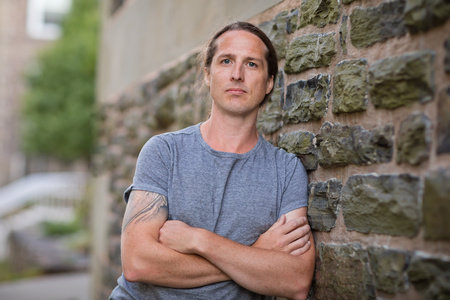
DAVID HUEBERT has won the CBC Short Story Prize, The Walrus Poetry Prize, and was a finalist for the 2020 Journey Prize. Huebert’s first story collection, Peninsula Sinking, won a Dartmouth Book Award and was runner-up for the Danuta Gleed Literary Award, among other accolades. His second story collection, Chemical Valley, won the Alistair MacLeod Short Fiction Prize, received glowing reviews, and was a finalist for the Thomas Raddall Atlantic Fiction Award and the ReLit Award. David teaches MFA in Fiction at the University of King’s College in Kjipuktuk (Halifax), where he lives with his partner and their two children.
Two options:
1: A talk for a generalist audience about ecological writing in the current moment. Drawing on the etymology of the term "crisis" (Ancient Greek for "decision"), I unpack what it means to write in a moment of ecological spasm and overlapping crises. It's no accident that crisis, as well, is a narrative principal. After establishing some theoretical foundations, I lead participants in a short eco-writing exercise, where they interview a nonhuman animal. Then we unpack this exercise, and concepts, together.
2: "Plodding to Plotting." A lecture for fiction writers, offering basic plot principals and some common plot hazards. I draw on thinkers like Matthew Salesses and Felicia Rose Chavez to put pressure on traditional Western storytelling modes, then offer writers various approaches to help them overcome "Plot Aversion Syndrome."
Dirty Nature Writing / Writing Dirty Nature. We begin by unpacking the term "nature" in the context of some theory by writers like Bill McKibben, Don McKay, and Elizabeth Kolbert. I encourage participants to think beyond the nature/civilization dichotomy. We then begin to narrate our own "dirty nature writing" stories. Students will become familiarized with this term, and eventually empowered to see dirty nature at work in the world around them, while also producing new creative writing, adding a new layer to their practices.
Introduction to short story writing. We read and analyze a microstory by George Saunders, exploring this story in small groups and playing a game where we arrange the sentences in different orders to discuss the effects. Then we write our own microstory, following pre-arranged prompts.



